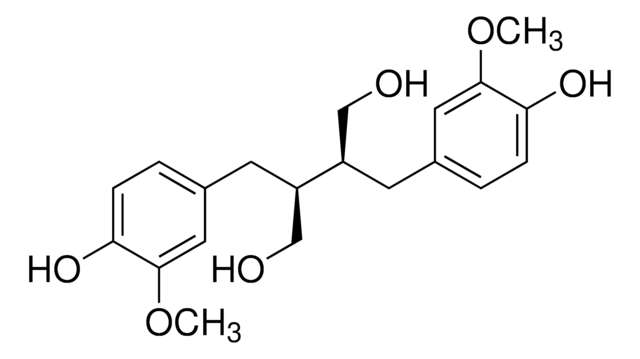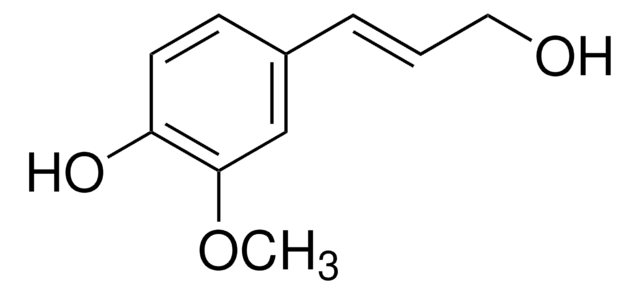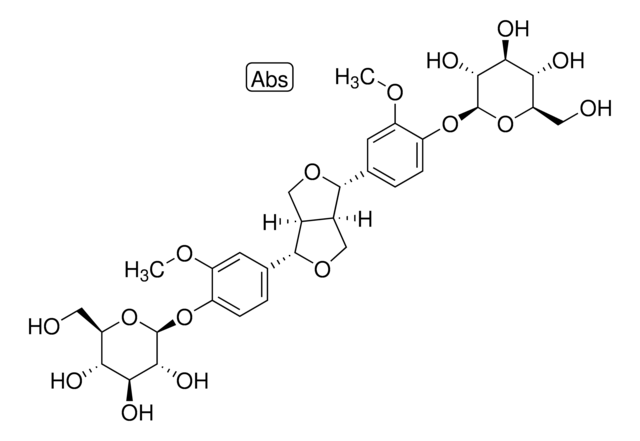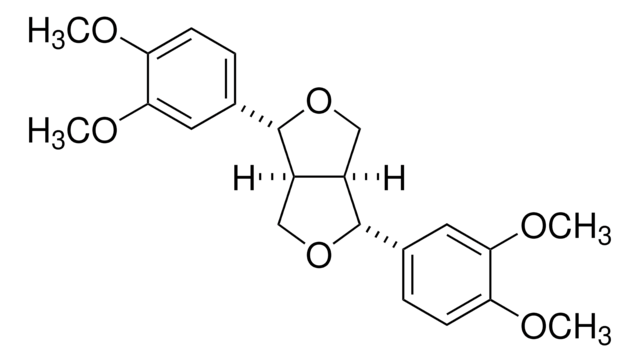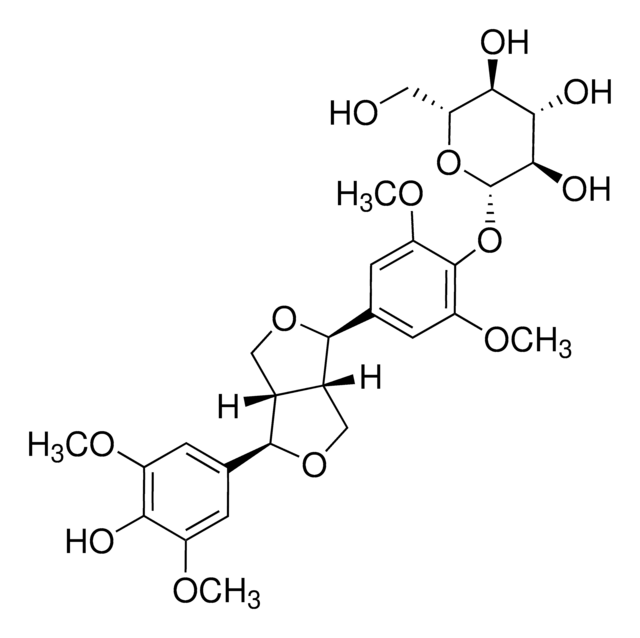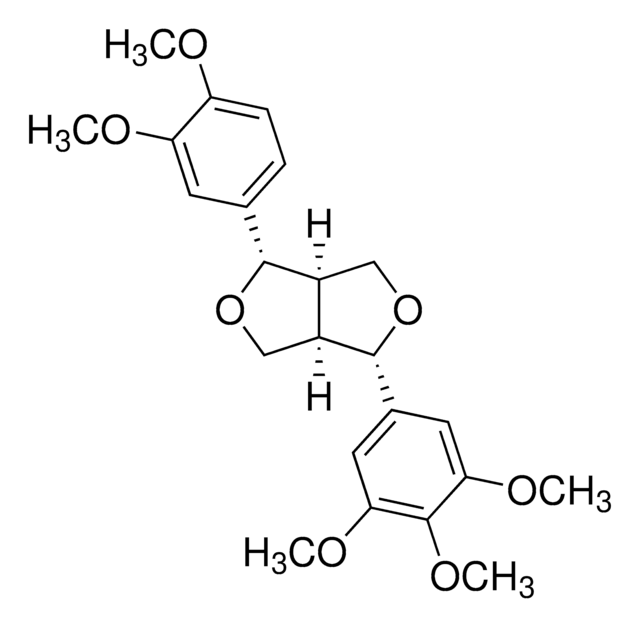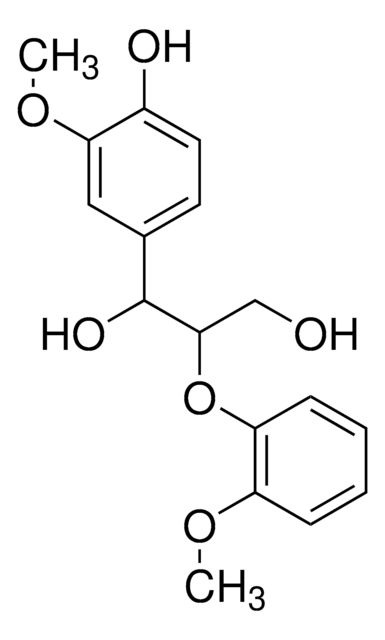40674
(+)-Pinoresinol
≥95.0% (HPLC)
Synonym(e):
4,4′-((1S,3aR,4S,6aR)-Hexahydrofuro[3,4-c]furan-1,4-diyl)-bis-(2-methoxyphenol), 4,4′-[(1S,3aR,4S,6aR)-Tetrahydro-1H,3H-furo[3,4-c]furan-1,4-diyl]-bis(2-methoxyphenol)
About This Item
Empfohlene Produkte
Assay
≥95.0% (HPLC)
Form
powder or crystals
Anwendung(en)
metabolomics
vitamins, nutraceuticals, and natural products
SMILES String
COc1cc(ccc1O)[C@H]2OC[C@H]3[C@@H]2CO[C@@H]3c4ccc(O)c(OC)c4
InChI
1S/C20H22O6/c1-23-17-7-11(3-5-15(17)21)19-13-9-26-20(14(13)10-25-19)12-4-6-16(22)18(8-12)24-2/h3-8,13-14,19-22H,9-10H2,1-2H3/t13-,14-,19+,20+/m0/s1
InChIKey
HGXBRUKMWQGOIE-AFHBHXEDSA-N
Suchen Sie nach ähnlichen Produkten? Aufrufen Leitfaden zum Produktvergleich
Verwandte Kategorien
Allgemeine Beschreibung
Anwendung
- as a reference standard for qualitative and quantitative analysis of lignans from Triticale (X Triticosecale Wittmack) grains using ultra-performance liquid chromatography (UPLC) with photodiode and mass TQD detectors
- as an enterolignan precursor to study its estrogenic activity on the proliferation of human breast cancer MCF-7 cells
- as a reference standard for lignan analysis of Sesamum indicum L. seeds
Biochem./physiol. Wirkung
Verpackung
Lagerklassenschlüssel
11 - Combustible Solids
WGK
WGK 3
Flammpunkt (°F)
Not applicable
Flammpunkt (°C)
Not applicable
Analysenzertifikate (COA)
Suchen Sie nach Analysenzertifikate (COA), indem Sie die Lot-/Chargennummer des Produkts eingeben. Lot- und Chargennummern sind auf dem Produktetikett hinter den Wörtern ‘Lot’ oder ‘Batch’ (Lot oder Charge) zu finden.
Besitzen Sie dieses Produkt bereits?
In der Dokumentenbibliothek finden Sie die Dokumentation zu den Produkten, die Sie kürzlich erworben haben.
Kunden haben sich ebenfalls angesehen
Unser Team von Wissenschaftlern verfügt über Erfahrung in allen Forschungsbereichen einschließlich Life Science, Materialwissenschaften, chemischer Synthese, Chromatographie, Analytik und vielen mehr..
Setzen Sie sich mit dem technischen Dienst in Verbindung.
